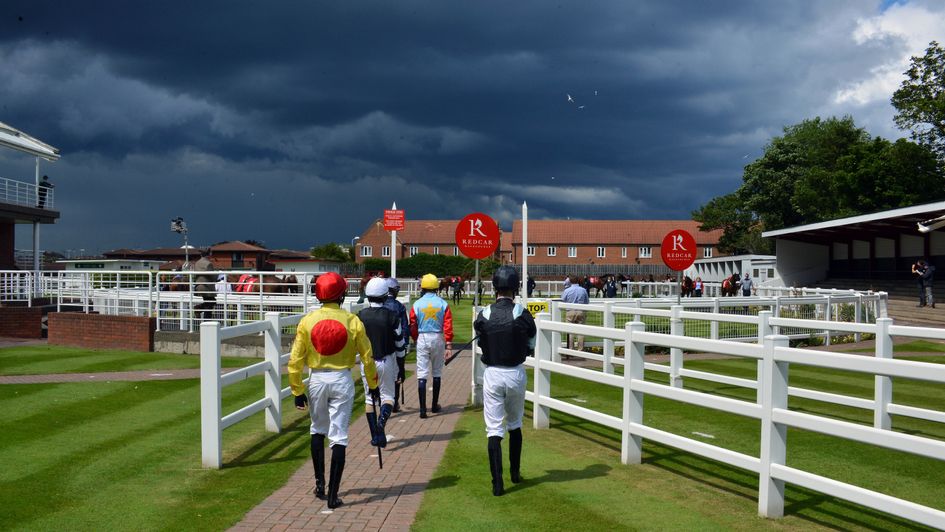Jockeys will continue to ride at a maximum of one meeting per day for the immediate future, while minimum prize-money levels are set to be restored to pre-Covid levels, the British Horseracing Authority has announced.
Racing’s rulers published a complete 2021 fixture list on Friday after initially only unveiling definite dates for the first four months of the year together with provisional plans for the remainder due to the uncertainties surrounding the pandemic.
The BHA has now confirmed a list, which encompasses a total of 1,486 meetings, developed “with a view to maximising revenue for the sport and participants, while safeguarding participant well-being and taking account of the horse population”.
There will be five fewer fixtures in total this year compared to what was scheduled in 2020, with the volume of races in July and August reduced “to ensure competitive racing and safeguard against possible reductions in horses in training as a result of the pandemic”, with juvenile numbers forecast to take a potential dip.
With the backing of the Levy Board, which has allocated £16.4million for prize-money between May 1 and June 30, and increased racecourse contributions, minimum race values will be reinstated for all tiers of races in 2021, with class one races and heritage handicaps having been operating at 75 per cent of their pre-Covid levels.
Richard Wayman, chief operating officer for the BHA, said: “Publishing the full fixture list now will provide greater certainty for the sport and its customers. This is particularly important for racecourses, who are being asked to make increased executive contributions as Levy Board funding begins to scale back.
“Of course, until spectators return and retail bookmakers reopen, racecourse revenues remain under considerable pressure. However, the publication of the fixture list does, at least, reduce one area of uncertainty for racecourses and would allow for increased confidence in forecasting some of their future revenue streams.
“Working with racecourses and participants, we will continue to develop the sport to make it attractive to both existing and new customers and investors.
“In addition, racing continues to liaise with Government and the appropriate bodies around the return of owners and spectators to race meetings, the delivery and distribution of the Government’s £40m winter survival fund, the potential impact of the Gambling Commission’s consultation on remote customer interaction, and proposals for urgent reform of the Levy.”
Since the resumption of racing in June following the lockdown, riders have only been allowed to participate at one meeting a day to satisfy Covid protocols – and that measure will remain in place until restrictions are no longer required, when it will be reviewed.
Ahead of that review, the number of Flat jockeys likely to be available at any one time means that a maximum of five Flat fixtures will be staged on any single day, with 18 fixtures moved for one year only to account for this.
Easter meetings have also been tweaked as there are usually greater numbers of fixtures programmed to encourage attendances, but no crowds be permitted until May 17 at the earliest, when only a limited number of racegoers would be allowed under the Government’s road map.
Dale Gibson, the Professional Jockeys Association’s executive director (racing), was pleased to see two breaks in the Flat calendar and one in the National Hunt dates maintained this year, but feels more should be done on that front next year.
He said: “All parties, but especially the BHA Racing Department, must be thanked for their hard work and skill in maintaining a workable fixture list since we resumed from lockdown last summer. Finalising any fixture list is never an easy task, but has been made even more challenging this year for obvious reasons.
“Everyone has had to compromise as result of the challenges and ongoing uncertainties caused by the global pandemic.
“We are pleased that the NH break in August and the two scheduled Flat breaks in March and November have been retained as these have proved to be of significant benefit to all jockeys and their families.
“However, whilst we need to be mindful of recovering from the financial impacts of the Covid 19 crisis, much more needs to be done to ease the significant pressures on the workforce.
“Due to the Covid related changes to the fixture list this summer, Flat jockeys, valets and other racing staff will see 167 days of racing with only three guaranteed days off between April 19 and October 2 – two Sundays in May and one in July.
“Participants in racing are not afraid of long days and hard work, but that is a tough gig in anyone’s book. It is no wonder that jockeys suffer burnout at twice the rate of athletes in other professional sports and that more than 25 per cent of PJA members accessed some form of one-to-one mental health support in 2020.
“2022 needs to see a combination of extended breaks and more single code Sundays.
“The sport needs to pay more than lip service to participant welfare and any post-Covid financial recovery plan must balance maximising financial returns with the welfare of jockeys, trainers and racing staff.”










